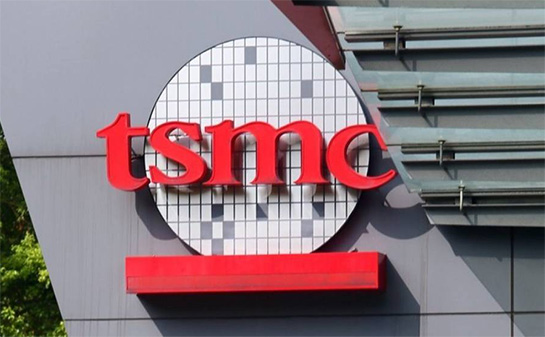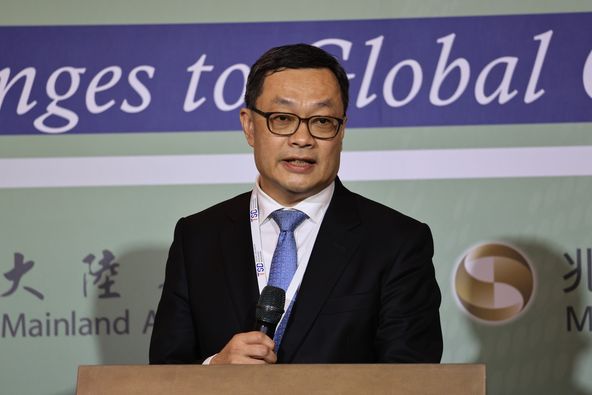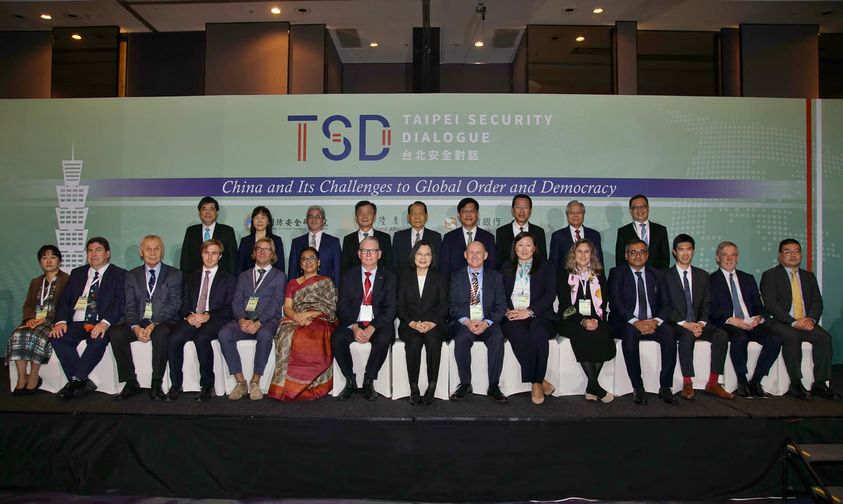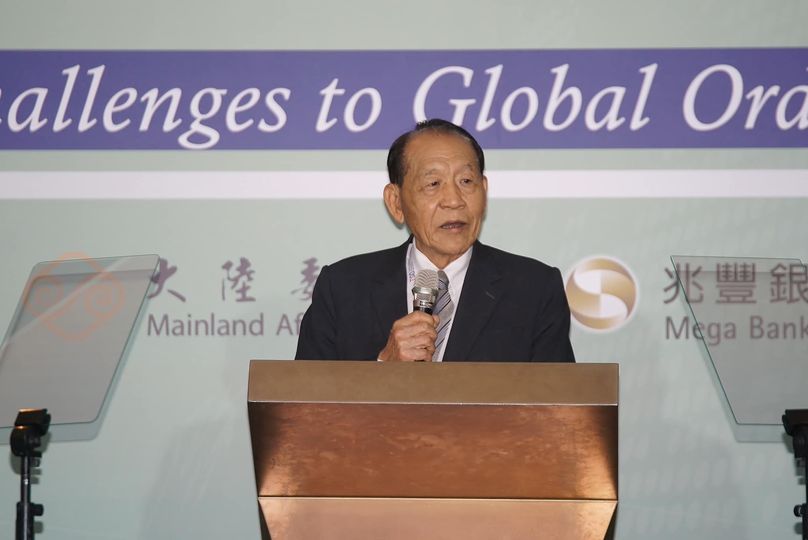Washington pressures TSMC to make chips in US
Exclusive: Washington pressures TSMC to make chips in US
Original text from: Nikkei Asian ReviewLAULY LI and CHENG TING-FANG, Nikkei staff writers
JANUARY 15, 2020 17:29 JST
 @Reuters
@ReutersTAIPEI -- Washington has upped the pressure on Taiwan Semiconductor Manufacturing Co. to produce its military-use chips in the U.S., in order to ensure that the world's biggest contract chipmaker can manufacture the highsecurity components free from potential Chinese interference, sources have told the Nikkei Asian Review.
TSMC, which makes computer chips used in American F-35 fighter jets and serves as a key supplier to Apple as well as Chinese telecommunications giant Huawei Technologies, has sidestepped similar U.S. security requests before.
But as Beijing and Washington jostle for technological and military supremacy, the company faces growing American pressure to make a firm decision about producing in the U.S. or offering another security-compatible solution before the U.S. presidential election in November.
Though Washington and Beijing are due to sign the first phase of a trade deal this week, easing two years of bilateral tensions, the pressure on TSMC shows that global tech supply chains are still decoupling as security hawks in the U.S. administration continue to press the White House to act over China's technological and military buildup.
"The U.S. government wants chips that go into military projects to be built on American soil," a senior Taiwanese government official, who was briefed about Washington's approaches to TSMC given the company's strategic and technological importance, told Nikkei. "That's for national security concerns, and they [the U.S.] don't plan to back off on that."
TSMC, which holds a 50% share of the world's chip foundry business, supplies computer chips to Huawei and American tech giants such as Google, Qualcomm and Intel. The Taiwanese company also supplies high-performance chips for U.S. military suppliers such as Xilinx, which in turn makes components for American F-35 fighter jets and satellites.
Washington has made keeping Chinese technology and surveillance at bay a global priority. TSMC, as a major U.S. and Chinese chip supplier, has often found itself in the middle of the technology standoff as a result. In addition to the F-35 jets, TSMC makes U.S. Defense Department-approved "military grade" chips that may be used by some of its other American clients for classified military purposes.
Industry sources said American officials talked with TSMC "several times" ahead of last weekend's election in Taiwan, which saw China-skeptic President Tsai Ing-wen reelected in an outcome that Beijing decried but that U.S. Secretary of State Mike Pompeo hailed as "a force for good in the world."
Ian Steff, assistant secretary of the U.S. Commerce Department, last month made his third visit to Taiwan during 2019, where he met with TSMC founder Morris Chang and Chairman Mark Liu at a private reception, one executive source told Nikkei.
"We've noticed that many U.S. tech executives and government officials are concerned about their country's dependence on TSMC and the security of their defense industry's supply chains," said Su Tze-yun, director of Taiwan's Institute for National Defense and Security Research.
"That's why the U.S. constantly hopes that TSMC could stand with them to make chips somewhere else other than just Taiwan, which they think is not completely safe because China has not ruled out the possibility of taking control of the island by force," the director said.
Su was referring to Chinese President Xi Jinping, who repeated last year that Beijing would not rule out using force to expedite unification between mainland China and Taiwan, which it views as a wayward province.
Chinese Foreign Ministry spokesman Geng Shuang reiterated Beijing's stance this week, saying that he hoped the international community would continue to "support the just cause of Chinese people to oppose the secessionist activities for 'Taiwan independence' and realize national reunification."
The Pentagon has long worried about such risks and last year contacted several TSMC customers, warning them about the security implications of offshoring production to a Taiwanese company. TSMC's work for Huawei may add an extra perceived level of risk.
Industry sources said they expect the U.S. administration to increase restrictions this year on the use of U.S. technology by Huawei, which Washington views as a security threat. Huawei has consistently denied the allegations.
Huawei, which last year asked TSMC to transfer more chip production to its $3 billion advanced plant in Nanjing that started production in 2018, accounts for 10% of TSMC's revenue. Chinese clients in total provide around 20%.
Some China hawks in President Donald Trump's administration, which this week urged the U.K. to exclude Huawei from Britain's 5G network, may even be seeking a near-outright ban on all U.S. technology sales to China, though no consensus exists on the issue in the White House, The Wall Street Journal reported on Wednesday.
"Before the next U.S. presidential election, TSMC will have to respond further to this urgent request from its U.S. customers under pressure from the American government to make sure that sensitive chips will either be more secure or, better, that such chips are produced on American soil," another source familiar with TSMC's situation said.
TSMC said repeatedly last year that it would not rule out building or buying a high-specification plant in the U.S. to assuage such concerns, though the company also cautioned that such a move would need to be weighed carefully given the higher operating costs involved.
"We have never ruled out building or acquiring a fab [semiconductor fabrication plant] in the United States, but currently there is no concrete plan," TSMC reiterated when Nikkei sought comment for this article.
TSMC's closest American rival, contract chipmaker Globalfoundries, has one advanced chip facility in New York. But the company, owned by the Abu Dhabi sovereign wealth fund, is considered unable to meet U.S. demands for the latest chip technologies needed in advanced applications, such as military uses.
That has left TSMC to walk a delicate line between its two biggest customers, especially given security concerns about the risk of computer chips being compromised in a conflict via so-called back doors that might cause entire networks to be shut down.
"A lot of work lies ahead to effectively adopt a holistic, "zero-trust" approach to security in microelectronics," Lisa Porter, the U.S. deputy undersecretary of defense for research and engineering, wrote last September in a Defense Department article about electronic security.
The U.S. accounts for 60% of TSMC's sales, but the company operates only its subsidiary WaferTech there, producing chips for mature technologies. The majority of TSMC's production is in Taiwan.
"As the world becomes more chaotic, TSMC is emerging as a strategic territory that all geopolitical forces aim to secure," Chang, the company founder, told reporters and employees in November.




